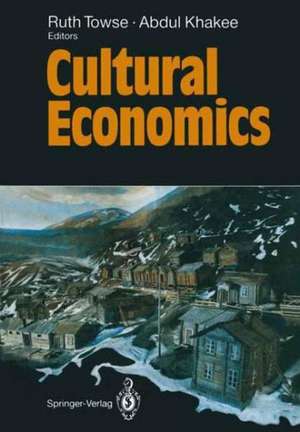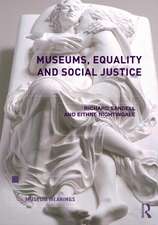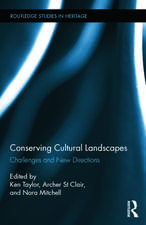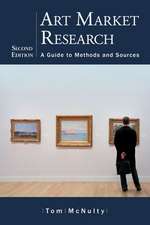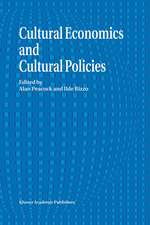Cultural Economics
Editat de Ruth Towse, Abdul Khakeeen Limba Engleză Paperback – 7 dec 2011
Preț: 948.16 lei
Preț vechi: 1156.29 lei
-18% Nou
Puncte Express: 1422
Preț estimativ în valută:
181.43€ • 189.43$ • 150.16£
181.43€ • 189.43$ • 150.16£
Carte tipărită la comandă
Livrare economică 04-18 aprilie
Preluare comenzi: 021 569.72.76
Specificații
ISBN-13: 9783642773303
ISBN-10: 3642773303
Pagini: 308
Ilustrații: XII, 293 p.
Dimensiuni: 170 x 242 x 16 mm
Greutate: 0.52 kg
Ediția:Softcover reprint of the original 1st ed. 1992
Editura: Springer Berlin, Heidelberg
Colecția Springer
Locul publicării:Berlin, Heidelberg, Germany
ISBN-10: 3642773303
Pagini: 308
Ilustrații: XII, 293 p.
Dimensiuni: 170 x 242 x 16 mm
Greutate: 0.52 kg
Ediția:Softcover reprint of the original 1st ed. 1992
Editura: Springer Berlin, Heidelberg
Colecția Springer
Locul publicării:Berlin, Heidelberg, Germany
Public țintă
ResearchDescriere
Cultural economics as a field of research involves twoareas, culture and economy. These two areas have beentraditionally regarded as each other's antithesis. However,the economic aspects of culture have increasingly become amatter of everyday reality for persons working in thecultural field. The economy of culture has always been inthe focus of political interest. Political decisionsconcerning such priority areas as the development ofregional institutions, support to the artists and culturalprogrammes for children and youth have important economicimplications. This book deals with a range of topics incultural economics. It contains original papers byeconomists workingin the field from 15 different countriesand covers a host of both theoretical and practical issues,covering the performing arts, arts marketsand museums. Itrepresents an up-to-date statement of the application ofeconomic ideas to cultural questions.
Cuprins
Section I: Policy and Policy Evaluation.- 1. Economics, Cultural Values and Cultural Policies.- 2. Public Choice and Public Funding of the Arts.- 3. Problems of Planning Cultural Programs under Endogenous Tastes.- 4 The Rationale for Public Funding of a National Museum.- 5. Assessing and Financing Cultural Investments.- 6. The Wexford Opera Festival: A Case for Public Funding?.- 7. Trends in Art Policy: The Dutch Case.- Section II: Pricing Issues.- 8. Some Unanswered Questions in the Economics of Art.- 9. Auction of Works of Art.- 10. Factors Affecting Price on the Contemporary Art Market.- 11. The Classification of Prices: An International Comparative Inquiry into the Admission Prices for Cultural Events.- Section III: Audiences for the Arts.- 12. Art Productivity in the Information Age.- 13. Risk, Risk Aversion and the Demand for Performing Arts.- 14. Museum Visitor Surveys: An Overview, 1930–1990.- Section IV: Trade in Cultural Goods.- 15. Considerations in Adapting Industrial Organization Theory to the International Trade in Cultural Goods.- 16. The Canada-U.S. Free Trade Agreement: Provisions Directly and Indirectly Affecting Trade in Cultural Product.- Section V: Artists’ Earnings.- 17. Why and How to Define an Artist: Types of Definitions and Their Implications for Empirical Research Results.- 18. Toward a Unified Theory of the Determinants of the Earnings of Artists.- 19. Artists as Workers.- 20. The Earnings of Singers: An Economic Analysis.- Section VI: Country Studies.- 21. On the Economics of the Performing Arts in the USSR and the USA: A Preliminary Comparison of the Data.- 22. Cultural Policy in an Era of Budgetary Stringency and Fiscal Decentralization: The U.S. Experience.- 23. A Cultural Good Called Venice.- 24. Thaliametrics — A Case Study of Copenhagen Theatre Market.- 25. Art Costs and Subsidies: The Case of Norwegian Performing Arts.- 26. Socio-Economic Characteristics of Audiences for Western Classical Music in Japan: A Statistical Analysis.- Author’s index.
